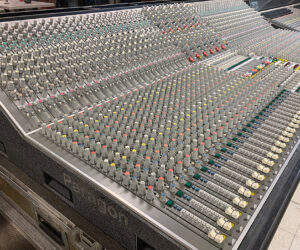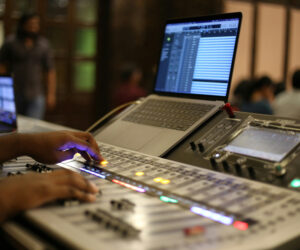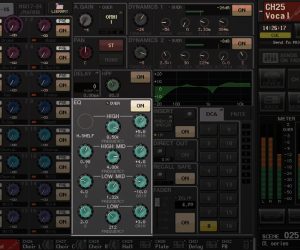The ability to record and mix music is no doubt a skill and an art form.
Developing it takes time, and requires many “failures,” experiments, and learning experiences.
In my opinion, to truly succeed and excel in the recording industry – or any industry for that matter – you must have a craving and a passion to absorb the infinite amount of knowledge that’s out there.
I wanted to give you some quick knowledge nuggets that I received in response to a question that I posed to engineers on a recording forum.
I asked them: “What’s your most memorable ‘a-ha’ moment in learning to record & mix music?”
It’s difficult to pinpoint one “a-ha!” moment, as many of us have them all the time, but that’s a beautiful thing!
Regardless, I think some of us have a couple moments that really stand out – instances where we learned or observed something that stuck with us, opened new doors, and forever improved our abilities.
Below is a collection of what I thought were some intriguing responses to the question. I hope you learn something new from what others consider to be their memorable “a-ha” moments..
—“The moment i realized that there’s a big difference between knowing something and actually getting it.”
—“When, after years of recording rubbish, somebody of near genius level steps up in front of the microphone. Suddenly, I’m a recording genius too.”
—“Learning the most about the gear and tools I already have at my disposal.”
—“Compression: This is such a vast subject but getting the attack and release time is so vitally important. Compression can kill a performance or completely elevate it.”
—“Realizing that knowing techniques and tricks doesn’t make mixing that much easier, but knowing how you want things to sound is more important. The techniques just help you get there, perhaps quicker”
—“When I first realized that I could automate pretty much everything.”
—“The day I turned off my computer screen. Simple, but highly effective.”
—“The first time I recorded and sat down to mix in my newly acoustically treated room. Wow… first time I heard true seperation on my mixes.”
—“How simply pulling out a little 300-350Hz on most close miked tracks can really make things sound more real and less muddy and boxy.”
—“Subtractive EQ: get rid of freq’s instead of adding. How many times did I try to bring out a certain range, when it would have made much more sense in the big picture to take out what I didn’t want.”
—“Discovering Figure-8, and also hearing a ribbon mic on a distorted guitar amp.”
—“Avoiding ‘default’ presets – whilst presets and templates can be a time-saver some of the time, they can also be a crutch and a bad habit to get into.. better to listen then decide.”
—“When I removed all plugins from the session and found out that digital can sound decent after all.”
—“The first time I threw up a quick mix of the raw tracks instead of attempting to dial in “the perfect kick sound” etc on each track in an a la carte fashion. It cut my average mix time in half and increased overall quality.”
—“Getting stuck in a mix, throwing down all the faders, trashing all inserts and sends, and bringing up the faders again. Wow.”
—“Compression. Specifically dynamic EQ’ing via sidechain compression.”
—“You know, no matter how dynamic I get my performances to be, I find that I can always get them to another level by riding those faders (automation).”
—“When I stopped using presets on plug-ins to mix and realized I actually knew what sound I wanted and how to get it.”
—“Room mics & distance mics can add depth and dimension to tracks, when blended in – especially with drums.”
—“Making a quick level mix before EQ/Compression.
—“Buying my first high-end preamps. Took those same old microphones, and mic’ed my drum kit. I fell of my chair.”
—“When I first mixed in a well-treated room on good monitors and realized that all I needed to do was make the mix sound good in this room and on these monitors.”
—“High-Pass filters are your friend!”
—“Parallel compression allows more “natural” dynamics – and/or – use more compressors less aggressively.”
—“Musical Arrangement is VERY important to the outcome of a mix.”
—“You can’t always fix it in the mix. Don’t be afraid to re-track it if it’s not right”
—“Getting feedback on my mixes, even from non-musicians/engineers”
—“There are no rules – adjust as needed.”
Dan Comerchero is the founder and editor of the ProAudioFiles.com, a community blog where audio professionals from around the world share pro audio related articles, techniques, and advice on recording, mixing, production and more.
Be sure to visit the Pro Audio Files for more great recording content. To comment or ask questions about this article go here.
















